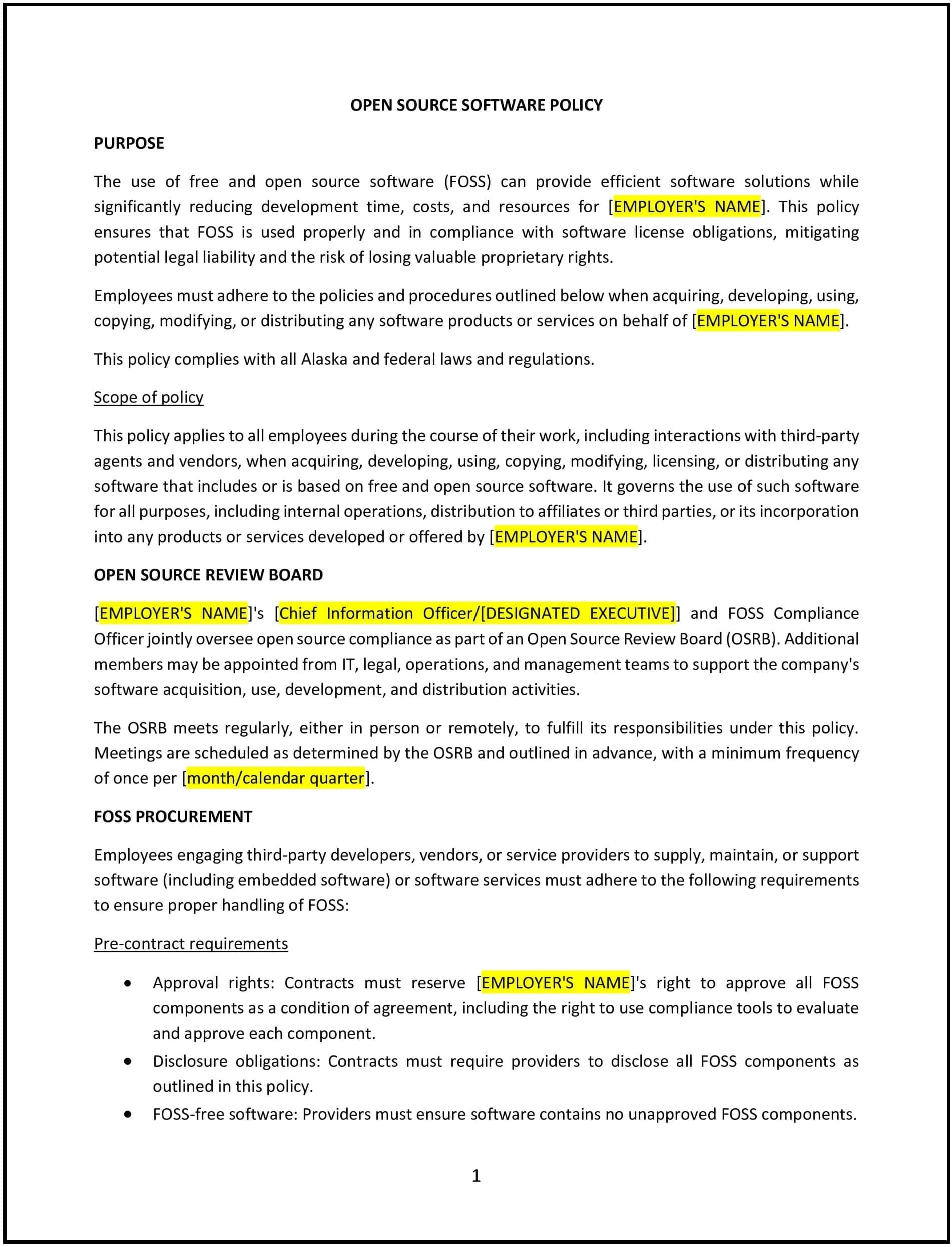Open source software policy (Alaska): Free template
Got contracts to review? While you're here for policies, let Cobrief make contract review effortless—start your free review now.

Customize this template for free
Open source software policy (Alaska)
In Alaska, an open source software (OSS) policy provides guidelines for using, contributing to, and managing open source software within a business. This policy ensures that employees follow best practices for compliance, security, and intellectual property protection when working with OSS. By implementing an OSS policy, businesses can leverage the benefits of open source software while mitigating potential legal and operational risks.
Given Alaska’s unique workforce needs, such as reliance on remote and digital tools, businesses may need to emphasize secure and compliant usage of OSS in distributed environments.
How to use this open source software policy (Alaska)
- Define acceptable use: Clearly outline the types of OSS that can be used in company projects, emphasizing compatibility with business goals and security standards.
- Set approval procedures: Require employees to seek approval before introducing OSS into company projects to ensure compliance with licensing requirements and security protocols.
- Address contributions to OSS: Include guidelines for employees contributing to open source projects, such as obtaining management approval and avoiding disclosure of proprietary information.
- Include compliance measures: Specify steps for ensuring compliance with OSS licenses, such as tracking usage, maintaining documentation, and adhering to redistribution terms.
- Emphasize security: Provide protocols for assessing OSS security risks, including vulnerability scans and regular updates.
Benefits of using an open source software policy (Alaska)
An OSS policy provides significant benefits for businesses in Alaska. Here’s how it helps:
- Enhances productivity: Allows employees to leverage reliable and cost-effective OSS tools to accelerate project development.
- Reduces legal risks: Ensures compliance with OSS licenses, avoiding potential lawsuits or intellectual property disputes.
- Improves security: Establishes protocols for assessing and mitigating OSS-related security risks, protecting company data and systems.
- Promotes innovation: Encourages employees to use and contribute to OSS responsibly, fostering collaboration and technological advancements.
- Supports transparency: Provides clear guidelines for OSS use, ensuring consistency and accountability across the organization.
Tips for using an open source software policy (Alaska)
- Tailor to industry needs: Include provisions for specific OSS tools commonly used in your industry, such as GIS software for Alaska’s natural resources sector.
- Leverage trusted sources: Require employees to download OSS from reputable platforms to reduce security risks.
- Track OSS usage: Maintain an inventory of all OSS used in company projects to monitor compliance and address potential issues proactively.
- Provide training: Educate employees on the importance of OSS compliance, including licensing terms, security risks, and best practices for contributions.
- Update regularly: Revise the policy to reflect changes in technology, licensing standards, or business operations.